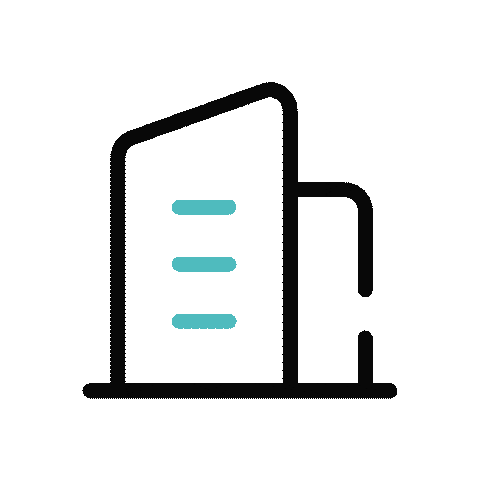High blood pressure is often thought of as a health concern for elderly people, but these days, an increasing number of young individuals are also being diagnosed with this condition. Also known as hypertension, high blood pressure in young adults can lead to serious health risks if not detected and managed early. Unlike occasional spikes in blood pressure caused by stress or exertion, persistent hypertension can quietly damage the heart, kidneys, and blood vessels over time. With early diagnosis, appropriate treatment, and regular monitoring, high blood pressure can be effectively controlled, helping young adults lead healthier lives. In this article, we will explore the causes, symptoms, types, treatment options, preventive strategies, and the importance of blood pressure monitoring in young individuals.
Understanding High Blood Pressure in Young Adults
High blood pressure, or hypertension, occurs when the force of blood against the walls of the arteries remains consistently too high. In young adults, this condition can often go unnoticed for years because it rarely causes obvious symptoms in its early stages. However, even mild elevations in blood pressure can increase the long-term risk of heart disease, stroke, kidney failure, and other serious complications.
For young individuals, normal blood pressure is generally considered to be around 120/80 mmHg. Readings consistently above 130/80 mmHg may indicate hypertension. With early identification and appropriate management, the risks associated with high blood pressure can be significantly reduced, allowing young adults to maintain an active and healthy lifestyle.
Types of High Blood Pressure
High blood pressure in young adults can present in different forms, depending on the underlying cause and the pattern of blood pressure changes. Recognising the type of hypertension is important for effective diagnosis and management.
1. Primary Hypertension
Primary hypertension, also called essential hypertension, is the most common form and develops gradually over time without a specific identifiable cause. It is often linked to genetic factors, poor lifestyle habits, or a combination of both.
2. Secondary Hypertension
This type occurs due to an underlying medical condition such as kidney disease, hormonal disorders, or the use of certain medications. Secondary hypertension typically develops rapidly and can result in more significant increases in blood pressure compared to primary hypertension.
3. White Coat Hypertension
Some individuals experience elevated blood pressure readings only in clinical settings due to anxiety. Outside the doctor’s office, their blood pressure may remain normal.
4. Masked Hypertension
In contrast to white coat hypertension, masked hypertension refers to normal blood pressure readings in clinical settings but elevated levels at home or during daily activities.
5. Sustained Hypertension
Sustained hypertension is characterised by consistently high blood pressure both in clinical settings and at home, requiring continuous monitoring and long-term management.
6. Nocturnal Hypertension
This condition refers to blood pressure that remains elevated during sleep. It can increase the risk of cardiovascular complications and often requires specialised monitoring for detection.
Risk Factors & Causes of High Blood Pressure in Young Adults
High blood pressure in young adults can result from a combination of lifestyle choices, medical conditions, and genetic factors. Understanding these causes of high blood pressure in young adults and associated risks is essential for effective prevention and management.
Lifestyle and Behavioural Causes
- Obesity: Excess body weight places additional strain on the heart and blood vessels, increasing the risk of hypertension.
- Alcohol Consumption: Regular intake of alcohol, especially in large amounts, can raise blood pressure over time.
- Smoking: Tobacco use damages blood vessel walls, leading to narrowing of the arteries and higher blood pressure.
- Certain Medications: Some prescription and over-the-counter drugs, including birth control pills, decongestants, and pain relievers, can contribute to elevated blood pressure.
- Illegal Drug Use: Substances such as cocaine and amphetamines can cause sudden and severe increases in blood pressure.
- High Salt Intake: Consuming foods high in sodium leads to water retention, which increases blood volume and pressure.
- Lack of Physical Activity: A sedentary lifestyle contributes to weight gain and weakens the heart, making it harder to pump blood efficiently.
- Frequent Red Meat Consumption: Diets rich in red meat, particularly processed varieties, have been linked to a higher risk of developing hypertension.
Medical and Genetic Causes
- Underlying Health Conditions: Diseases such as kidney disorders, thyroid problems, and hormonal imbalances can directly impact blood pressure regulation.
- Genetic Factors: A family history of hypertension increases the likelihood of developing high blood pressure at a younger age.
Complications and Health Risks
If left untreated, high blood pressure in young adults can lead to serious complications, including:
- Increased risk of heart disease and heart attacks
- Higher likelihood of stroke
- Progressive kidney damage and potential kidney failure
- Vision problems due to damage to blood vessels in the eyes
Symptoms Associated with High Blood Pressure in Young Adults
High blood pressure is often called a "silent killer" because it may not cause noticeable symptoms until significant damage has already occurred. However, some young adults may experience warning signs that suggest elevated blood pressure levels.
- Headaches: Persistent or intense headaches, especially upon waking, may indicate poorly managed high blood pressure.
- Nosebleeds: Although not very common, unexplained nosebleeds can sometimes occur when blood pressure is extremely high.
- Shortness of Breath: Experiencing breathlessness or difficulty breathing during routine activities could be a sign that high blood pressure is impacting heart or lung function.
- Dizziness: Episodes of light-headedness or dizziness can result from fluctuations in blood pressure and may require immediate evaluation.
- Fatigue: Persistent tiredness or lack of energy can occur when high blood pressure impacts the body's circulation and oxygen delivery.
- Chest Pain: Chest discomfort or tightness should never be ignored, as it may indicate heart strain or other cardiovascular complications related to high blood pressure.
Diagnosis of High Blood Pressure in Young Adults
Diagnosing high blood pressure in young adults is essential to managing the condition and preventing long-term complications. Regular monitoring and accurate measurement techniques are crucial for early detection and effective treatment.
Routine Blood Pressure Checks
The most common and straightforward way to diagnose high blood pressure is through routine blood pressure measurements. These checks are typically done during annual health check-ups or during visits to the doctor for any other health concerns.
Ambulatory Blood Pressure Monitoring
For a more accurate picture of blood pressure, ambulatory blood pressure monitoring may be used. This involves wearing a device that measures blood pressure at regular intervals over a 24-hour period, including while sleeping. This test helps to identify patterns such as nocturnal hypertension or white coat hypertension.
Additional Tests
To assess the underlying causes of high blood pressure or any damage it may have caused, additional tests may be performed, including:
- Blood Tests: To check for kidney function, electrolyte balance, and other factors affecting blood pressure.
- ECG (Electrocardiogram):To evaluate the electrical activity of the heart and detect any potential heart damage.
- Urine Analysis: To check for protein or other signs of kidney damage that may be related to hypertension.
Interpreting Systolic and Diastolic Readings
Blood pressure is recorded as two numbers:
- Systolic Pressure: The pressure in the arteries when the heart beats.
- Diastolic Pressure: The pressure in the arteries when the heart is at rest between beats.
A normal reading is usually around 120/80 mmHg. Readings above 130/80 mmHg indicate hypertension.
Treatment Approaches for High Blood Pressure
Managing high blood pressure is essential to prevent complications and maintain overall health. Treatment generally includes a combination of lifestyle modifications, medication, and ongoing monitoring.
Lifestyle Modifications
Making changes to daily habits is often the first step in managing high blood pressure. These modifications can help reduce reliance on medication and improve long-term health outcomes:
- Dietary Changes (Low Sodium, DASH Diet): Lowering sodium intake and following the DASH (Dietary Approaches to Stop Hypertension) diet, which emphasizes the consumption of fruits, vegetables, whole grains, and low-fat dairy, can significantly help reduce blood pressure.
- Regular Exercise and Weight Management: Engaging in physical activity, such as walking, jogging, or cycling, helps strengthen the heart and reduce excess weight, both of which are crucial for managing blood pressure.
- Reducing Alcohol and Quitting Smoking: Cutting back on alcohol consumption and quitting smoking can significantly improve heart health and reduce blood pressure.
- Stress Management Techniques: Practising relaxation techniques such as deep breathing, meditation, yoga, or mindfulness can help reduce stress, which is a contributing factor to high blood pressure.
Medication
In some cases, lifestyle changes may not be sufficient, and medication is prescribed to help manage blood pressure levels. Common classes of medications include:
- Diuretics (Water Pills): Help the body get rid of excess sodium and water, reducing the volume of blood and, in turn, lowering blood pressure.
- ACE Inhibitors: Help relax blood vessels and reduce the risk of heart failure and kidney damage.
- Calcium Channel Blockers: Relax blood vessels and reduce the heart rate, making it easier for the heart to pump blood.
- Beta-Blockers: Reduce heart rate and the workload on the heart by blocking the effects of adrenaline.
Ongoing Monitoring
Regular monitoring of blood pressure is critical to ensure that treatment is effective and to make adjustments as needed. This may involve home blood pressure monitoring or periodic visits to the doctor for check-ups.
Preventive Strategies for Managing Blood Pressure in Young Adults
Preventing high blood pressure is crucial for young adults to maintain long-term health and reduce the risk of developing hypertension later in life. By adopting healthy habits early on, many individuals can avoid or delay the onset of high blood pressure.
Maintaining a Healthy Weight
Being overweight or obese is a significant risk factor for high blood pressure. Maintaining a healthy weight through a balanced diet and regular physical activity helps reduce the strain on the heart and blood vessels, supporting normal blood pressure levels.
Adopting a Balanced, Low-Sodium Diet
Reducing sodium consumption is a key strategy in preventing high blood pressure. Focus on eating a variety of nutrient-dense foods, including fruits, vegetables, whole grains, and lean proteins, while cutting back on processed foods and added salt. The DASH (Dietary Approaches to Stop Hypertension) diet is highly recommended for its emphasis on foods that are rich in nutrients and low in sodium.
Staying Physically Active
Regular exercise strengthens the heart, improves circulation, and helps control weight, all of which are essential for maintaining healthy blood pressure. Aim for at least 30 minutes of moderate exercise most days of the week.
Limiting Alcohol and Avoiding Tobacco
Excessive alcohol consumption and smoking can both raise blood pressure. Limiting alcohol intake and quitting smoking significantly reduce the risk of developing hypertension and promote overall cardiovascular health.
Managing Stress Effectively
Chronic stress is a contributing factor to high blood pressure. Practising stress management techniques, such as mindfulness, yoga, deep breathing, or engaging in hobbies, can help keep blood pressure within healthy levels.
Regular Blood Pressure Monitoring
Regular blood pressure checks are essential for early detection of hypertension. Monitoring allows for timely interventions, such as lifestyle changes or medications, before the condition leads to serious complications.
When to Seek Medical Advice
While high blood pressure often develops without noticeable symptoms, it is important to seek medical advice when certain signs or concerns arise. Early intervention can help prevent serious complications and manage the condition effectively.
Persistent High Readings
If your blood pressure consistently reads above 130/80 mmHg during routine checks, it's time to consult a healthcare provider. Persistent high readings can indicate hypertension, which requires prompt attention and management.
Sudden Symptoms or Discomfort
If you experience symptoms like severe headaches, chest pain, shortness of breath, dizziness, or nosebleeds, seek immediate medical advice. These may be signs of significantly elevated blood pressure or related complications that require urgent treatment.
Difficulty Managing Blood Pressure
If your blood pressure remains high despite lifestyle changes or prescribed medications, it's important to discuss alternative treatment options with your doctor. Additional medications or adjustments to your treatment plan may be necessary.
Family History of Hypertension or Cardiovascular Disease
If you have a family history of high blood pressure or cardiovascular diseases, regular monitoring and early intervention are essential to prevent the condition from progressing.
During Routine Health Check-Ups
If you are unsure about your blood pressure or have not had it checked in a while, it's recommended to include a blood pressure measurement during your routine health check-up. Regular monitoring helps catch potential issues early and allows for timely action.
Why Choose MaxAtHome for Blood Pressure Testing
Managing high blood pressure doesn’t have to mean long waits in crowded clinics. MaxAtHome offers convenient, accurate, and professional blood pressure testing from the comfort of your home. Whether you're monitoring your health or need regular check-ups, MaxAtHome ensures ease and reliability for individuals seeking accurate results and expert care.
Here’s why MaxAtHome is trusted for blood pressure testing:
- Home Sample Collection by Trained Professionals: No need to visit a clinic. Our skilled professionals visit your location to measure your blood pressure with precision and care.
- Fast and Accurate Results: Blood pressure readings are promptly processed, and results are delivered digitally through our secure platform for your convenience.
- Expert Consultation: If necessary, our medical team can arrange a follow-up consultation, either through a home doctor visit or teleconsultation, to discuss your results and suggest the next steps.
- Safe and Hygienic Process: Every step of the blood pressure testing procedure adheres to strict clinical protocols to ensure patient comfort and safety.
- Reliable Service Across Cities: MaxAtHome operates in major cities like Delhi, Noida, Gurugram, Mumbai, and more, ensuring timely and accessible care wherever you are.
If you are concerned about your blood pressure or are looking for a convenient and reliable way to monitor it, schedule a blood pressure test with MaxAtHome today. We offer easy home sample collection services with quick, accurate results. To book, simply use our user-friendly online platform or call 01244781023 to arrange a test at your convenience.
Frequently Asked Questions (FAQs)
What Causes High Blood Pressure in Young Adults?
High blood pressure in young adults is often caused by poor diet, lack of exercise, obesity, stress, smoking, excessive alcohol, or a family history of hypertension.
Can young adults really have high blood pressure?
Yes, high blood pressure can affect people of all ages, including young adults. While it’s more common in older individuals, lifestyle factors such as poor diet, lack of exercise, smoking, and excessive alcohol consumption can contribute to hypertension in younger people.
What is a normal BP reading for a 20–30-year-old?
For young adults, a normal blood pressure reading is generally around 120/80 mmHg. Readings consistently above 130/80 mmHg may indicate high blood pressure, and it's important to seek medical advice.
Is stress the main cause of hypertension in young people?
Stress can temporarily raise blood pressure, but it is not typically the main cause of chronic hypertension in young adults. Lifestyle factors, such as poor diet, lack of exercise, and genetics, are more common contributors.
Can high BP be reversed with lifestyle changes?
Yes, in many cases, high blood pressure can be managed or even reversed through lifestyle changes, including a healthy diet, regular exercise, weight management, reducing alcohol intake, and quitting smoking.
What are the long-term risks of untreated hypertension?
Untreated high blood pressure can lead to serious complications, including heart disease, stroke, kidney damage, and vision loss. It can also cause damage to blood vessels and organs over time.
How often should young adults check their blood pressure?
Young adults should have their blood pressure checked at least once every two years if it’s within the normal range. If blood pressure readings are high, more frequent monitoring may be recommended.
Can diet alone control BP in early stages?
Yes, in the early stages of high blood pressure, dietary changes like reducing sodium, eating more fruits and vegetables, and adopting the DASH diet can significantly help lower blood pressure.
Is high BP in youth genetic?
Genetics can play a role in high blood pressure. If there is a family history of hypertension, young adults may be at a higher risk of developing it themselves.
What exercises are best for lowering BP in young adults?
Aerobic exercises such as walking, jogging, swimming, and cycling are excellent for lowering blood pressure. Strength training can also be beneficial when combined with aerobic exercise.
Does screen time affect blood pressure?
Excessive screen time, especially when it leads to stress or poor sleep, can indirectly affect blood pressure. Prolonged sitting and lack of physical activity may also contribute to higher blood pressure.
Are fitness trackers accurate for BP monitoring?
While fitness trackers are useful for tracking general health and fitness, they may not always provide the most accurate blood pressure readings. For precise monitoring, it's best to use a medical-grade blood pressure monitor or consult a healthcare provider.
Can caffeine or energy drinks cause high BP?
Yes, caffeine and energy drinks can cause a temporary increase in blood pressure. The stimulating effects of caffeine can raise heart rate and blood pressure, especially in sensitive individuals.
How long does it take to lower BP naturally?
It can take a few weeks to months to see significant reductions in blood pressure through natural methods, depending on the individual and how consistently lifestyle changes are made.
What’s the difference between primary and secondary hypertension?
- Primary Hypertension: This is the most common form and develops gradually with no specific cause, often due to lifestyle factors and genetics.
- Secondary Hypertension: This type is caused by an underlying medical condition, such as kidney disease, hormonal disorders, or the use of certain medications.





















